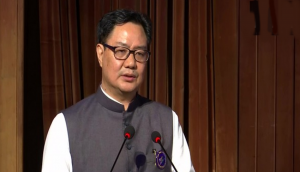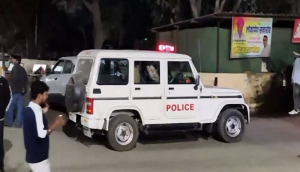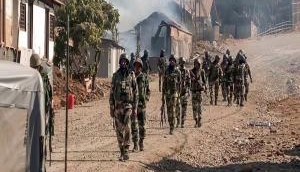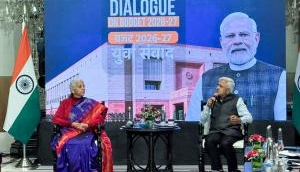
As BJP calls 25 June as Black Day-- the day when the emergency was imposed in 1975, Union Minister Arun Jaitley hit out at Congress over the imposition of Emergency in 1975 that lasted for whole 21 months and compares the then Prime Minister Indira Gandhi with German dictator Adolf Hitler. Jaitley in his Facebook post, he also says that both Hitler and Indira Gandhi imposed Emergency in their respective countries and transformed democracy into a dictatorship, claiming their actions were under the ambit of the Constitution.
Arun Jaitley further claims that the script of Emergency was well thought out in advance and asks, “Was this script inspired by what happened in Nazi Germany in 1933?” Here is the second part of Jaitley's post.
The Emergency Revisited: The Tyranny of Emergency
I was lodged in Delhi’s Tihar Jail for a week. Thereafter, along with twenty other detenues, I was shifted to the Ambala Central Jail. Under the conditions of detention rules, we were allowed a daily ration in which we had to manage all the meals. The budget available per revenue for the daily food was rupees three. Thus, if there were twenty detenues in a ward, from morning tea, breakfast, lunch, evening tea and dinner, they had to manage food for twenty people within sixty rupees. After months of agitation, this amount was enhanced to rupees five per detenue. For the initial few months, no meetings with family members were allowed. After a few months, your family members could meet for a few minutes once every month, which was subsequently increased to once every week. I was, at that stage, a student of the law faculty with still my final year to clear. A number of detenues filed petitions for quashing their detention. I also filed a similar petition.
Subsequently, I moved to court on several occasions for permission to write my law final year exams from jail but the Delhi University was asked to change the rules to the effect that personal presence in the examination centre is essential to write the exam. My plea that I be taken to centre under police custody to write my exam was rejected by the government on the ground that my presence in the examination centre was a threat to public order. During nineteen months of detention, I, therefore, lost one academic year and was in the danger of losing the second. Due to this litigation, I managed to get transferred back to Tihar Jail from Ambala.
An atmosphere of fear and terror prevailed in the country outside. Political activity had come to a grinding halt. The dissenters were mainly political workers of the opposition party and the RSS. They kept repeatedly organising satyagrahas where a number of people courted arrest. It goes to the credit of Shiromani Akali Das that it offered its cadres for satyagraha every day throughout the Emergency outside the Golden Temple and courted arrest. This earned Akali Dal a great respect in the entire country. The RSS which was unfairly banned also provided a large cadre for satyagraha.
The press was completely terrorised. Most editors and journalists surrendered and reconciled with the Idea of living in dictatorship. The Congress Party newspaper 'National Herald' editorially commented that time had come for India to evolve into a single party democracy. Mrs Gandhi herself called for the graduation of India from democracy to a 'disciplined democracy'. To give it credibility at the cost of losing his own, Acharya Vinoba Bhave called the Emergency 'anushasan parva'. There were, however, dissenters in the media. The Indian Express and The Statesmen played a legendary role in letting know their dissent against the Emergency. Ram Nath Goenka, CR Irani and Editor Kuldeep Nayar became the symbols of press freedom during the Emergency.
Here the complete post of Arun Jaitley
First published: 25 June 2018, 17:36 IST


_in_Assams_Dibrugarh_(Photo_257977_300x172.jpg)




![BJP's Kapil Mishra recreates Shankar Mahadevan’s ‘Breathless’ song to highlight Delhi pollution [WATCH] BJP's Kapil Mishra recreates Shankar Mahadevan’s ‘Breathless’ song to highlight Delhi pollution [WATCH]](https://images.catchnews.com/upload/2022/11/03/kapil-mishra_240884_300x172.png)

![Anupam Kher shares pictures of his toned body on 67th birthday [MUST SEE] Anupam Kher shares pictures of his toned body on 67th birthday [MUST SEE]](https://images.catchnews.com/upload/2022/03/07/Anupam_kher_231145_300x172.jpg)


_in_Assams_Dibrugarh_(Photo_257977_1600x1200.jpg)



